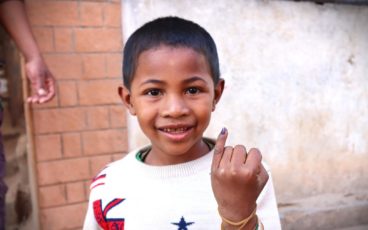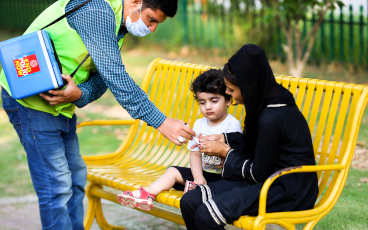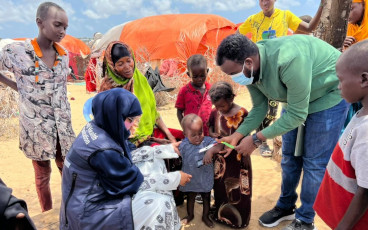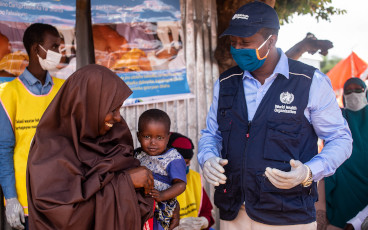Variant type 2 poliovirus isolated from sewage samples in Gaza
19 July 2024
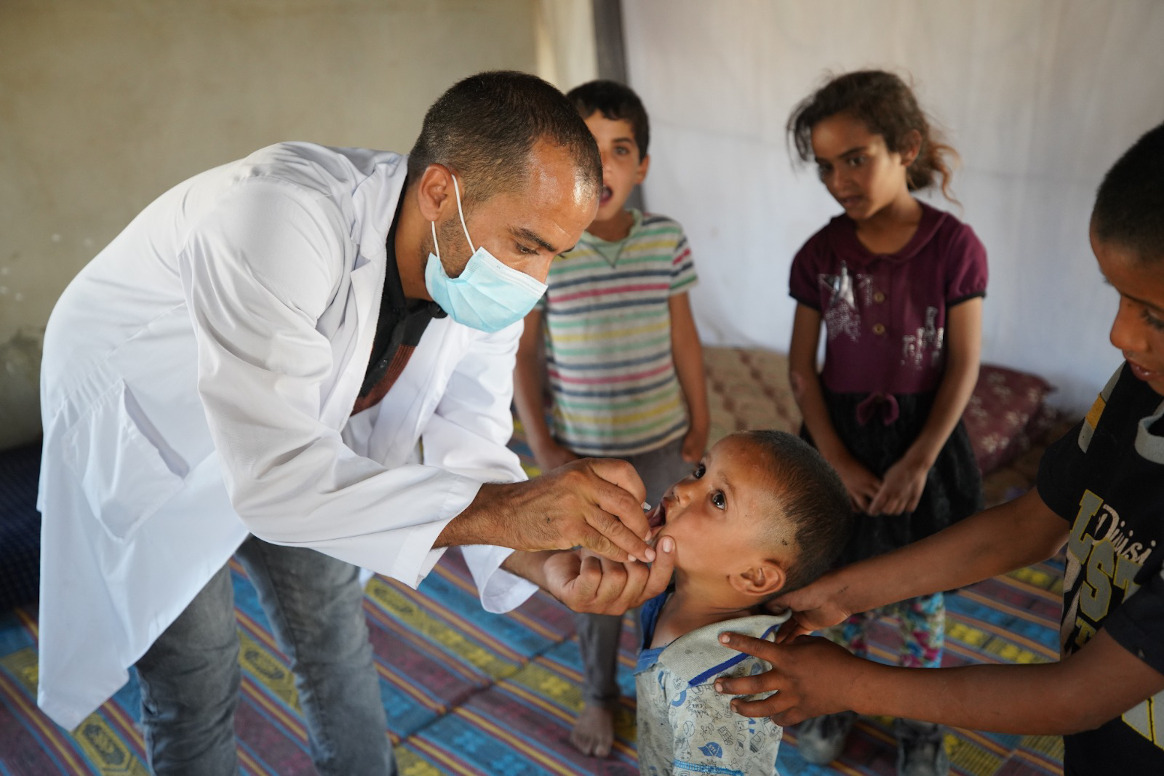
Variant type 2 poliovirus (VDPV) has been confirmed in the Gaza Strip. Virus was isolated from six environmental (sewage) samples, collected from two different collection sites in two sub-regions within Gaza, collected on 23 June 2024.
The variant poliovirus strains detected in all six wastewater samples, collected from two environmental surveillance sites in Khan Younis and Deir al Balah, are genetically linked to each other. The origin of the isolated viruses is being investigated. It is important to note that virus has been isolated from the environment only at this time; no associated paralytic cases have been detected.
A risk assessment is being implemented, led by the Ministry of Health of Gaza, including to assess surveillance sensitivity for the detection of acute flaccid paralysis (AFP) and environmental surveillance, and subnational immunity levels are being more clearly assessed.
WHO, UNICEF and partners continue to work with all public health authorities on the ground, as part of urgent efforts to mitigate the impact of the current crisis on the health of populations in Gaza. The ongoing crisis continues to pose a significant challenge to the ability to implement full disease surveillance and outreach with immunization services.
Routine immunization rates in the occupied Palestinian territory (oPt) were optimal before the start of conflict in October 2023. Polio vaccination coverage (POL3), primarily conducted through routine immunization, was estimated at 99% in 2022. This has declined to 89% in 2023, according to the latest WHO-UNICEF routine immunization estimates (WUENIC).
Currently, only 16 out of 36 hospitals are partially functional and 45 out of 105 primary health care facilities are operational. The impact on health system, insecurity, inaccessibility, population displacement, and shortages of medical supplies, coupled with poor quality of water and weakened sanitation, have contributed to reduced routine immunization rates and an increased risk of vaccine-preventable diseases, including polio.
WHO considers there to be a high risk of spread of this strain within Gaza, and internationally, particularly given the impact the current situation continues to have on public health services.




